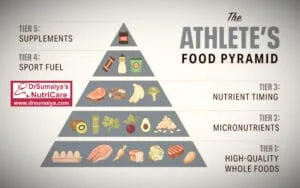Foods to Help You Quit Smoking: Nutrition Strategies for Tobacco Addiction
Quitting smoking is one of the best things you can do for your health, but it’s also one of the most challenging. While there’s no magic bullet, incorporating specific foods and adopting a holistic approach can significantly support your journey to becoming smoke-free. This comprehensive guide from Dr. Sumaiya NutriCare Clinic explores the role of nutrition in managing cravings, reducing withdrawal symptoms, and repairing the damage caused by smoking.
Table of Contents
How Nutrition Helps You Quit Smoking
Smoking affects your body in numerous ways, including nutrient depletion, increased oxidative stress, and inflammation. A well-planned diet can address these issues by:
- Reducing Cravings: Certain foods can help manage the oral fixation and psychological triggers associated with smoking.
- Managing Withdrawal Symptoms: Nutrient deficiencies can worsen withdrawal symptoms like irritability, anxiety, and difficulty concentrating. A balanced diet can help alleviate these symptoms.
- Repairing Cellular Damage: Smoking damages cells throughout the body. Antioxidant-rich foods help repair this damage and protect against further harm.
- Supporting Detoxification: Your body needs to eliminate the toxins accumulated from smoking. Certain foods and nutrients support the liver and other organs involved in detoxification.
- Improving Overall Health: A healthy diet improves your overall well-being, making you feel stronger and more capable of handling the challenges of quitting.
Top Foods to Combat Tobacco Cravings
Fruits and Vegetables
Fruits and vegetables are packed with vitamins, minerals, antioxidants, and fiber. They provide a healthy alternative to the oral stimulation of smoking. Crunchy options like carrots, celery, and apples can be particularly helpful. A study published in *Nicotine & Tobacco Research* found that individuals who consumed more fruits and vegetables were more likely to abstain from smoking for at least 30 days.[1]

Herbal Teas
Herbal teas like chamomile, peppermint, and lemon balm can help reduce stress and anxiety, common triggers for smoking. They also provide a comforting ritual to replace the habit of smoking. Chamomile, in particular, has been shown to have calming effects.[2]
Ginseng
Ginseng is an adaptogen, meaning it helps the body adapt to stress. Some studies suggest it may help reduce nicotine cravings and withdrawal symptoms.[3] It can be consumed as a tea or supplement, but consult your doctor before using ginseng, especially if you have any underlying health conditions or take medications.
Licorice Root
Licorice root has a naturally sweet taste that can help satisfy cravings. It may also soothe the respiratory system. However, use licorice root with caution. Excessive consumption can lead to high blood pressure, low potassium levels, and other health problems. Do not use it if you have high blood pressure, heart disease, or kidney problems. Consult your doctor before using licorice root.
Green Tea
Green tea is rich in antioxidants, particularly epigallocatechin gallate (EGCG), which has been shown to have numerous health benefits. The moderate caffeine content can provide a gentle energy boost and improve focus, helping to combat the fatigue and brain fog often associated with nicotine withdrawal. Green tea also supports detoxification.[4]

Omega-3 Fatty Acids
Omega-3 fatty acids, found in fatty fish (salmon, mackerel, sardines), flaxseeds, chia seeds, and walnuts, have anti-inflammatory properties. Inflammation is a key factor in many smoking-related health problems. Omega-3s also support brain health, which can be beneficial during nicotine withdrawal.[5]
Vitamin C-Rich Foods
Smoking depletes vitamin C, a powerful antioxidant that’s crucial for immune function and tissue repair. Replenish your vitamin C levels by consuming citrus fruits (oranges, grapefruits, lemons), berries (strawberries, blueberries, raspberries), kiwi, bell peppers, and broccoli.
Herbal Cigarettes (Nicotine-Free)
Nicotine-free herbal cigarettes can sometimes help address the hand-to-mouth habit of smoking. However, choose these very carefully. They should not contain nicotine or other harmful additives. They are not a long-term solution and should only be used as a temporary aid during the tapering process. Always check the ingredients and consult with a healthcare professional.
The Importance of a Holistic Approach
While nutrition plays a vital role, quitting smoking requires a comprehensive strategy. This includes:
- Behavioral Changes: Identify and address your smoking triggers. Develop coping mechanisms for cravings and stressful situations.
- Support Groups: Connecting with others who are quitting can provide encouragement and accountability.
- Counseling: Therapy, such as cognitive behavioral therapy (CBT), can help you change your thinking patterns and behaviors related to smoking.
- Medical Intervention: In some cases, your doctor may recommend nicotine replacement therapy (NRT) or other medications to help manage withdrawal symptoms.
For personalized guidance and support, consider a consultation with Dr. Sumaiya. A registered dietitian can help you create a tailored nutrition plan to support your quit-smoking journey.
References
- [1] Haibach JP, Homish GG, Giovino GA, Hyland A. A longitudinal evaluation of fruit and vegetable consumption and cigarette smoking. *Nicotine Tob Res*. 2014;16(3):329-337. doi:10.1093/ntr/ntt153
- [2] Srivastava JK, Shankar E, Gupta S. Chamomile: A herbal medicine of the past with bright future. *Mol Med Rep*. 2010;3(6):895-901. doi:10.3892/mmr.2010.377
- [3] Lee CH, Kim JH, Seo JY, et al. Effects of Korean Red Ginseng on the Smoking Cessation and the Smoking-related Biomarkers. *J Ginseng Res*. 2011;35(1):82-89. doi:10.5142/jgr.2011.35.1.082
- [4] Cabrera C, Artacho R, Giménez R. Beneficial effects of green tea–a review. *J Am Coll Nutr*. 2006;25(2):79-99. doi:10.1080/07315724.2006.10719518
- [5] Kiecolt-Glaser JK, Belury MA, Andridge R, Malarkey WB, Glaser R. Omega-3 supplementation lowers inflammation and anxiety in medical students: a randomized controlled trial. *Brain Behav Immun*. 2011;25(8):1725-1734. doi:10.1016/j.bbi.2011.07.229




